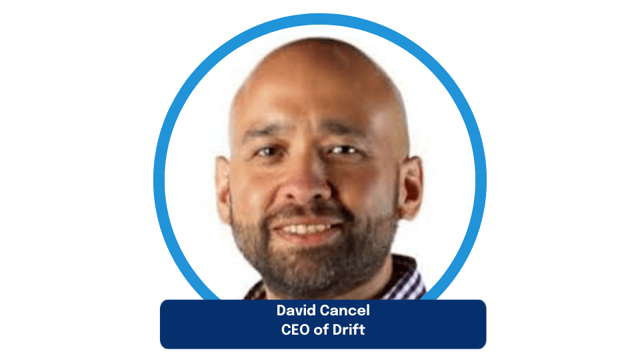Building a Customer-Driven Product Team is Product Management

David Cancel, CEO of Drift and formerly Chief Product Officer at Hubspot, shares how to build great product teams and how autonomy increases employee retention and customer-centricity.
Few guests on our show have founded multiple companies, let alone five that have achieved achieved meaningful success. After founding bolt.com, a leading community site, David shifted to focus on online measurement before founding Performable in 2009, which was acquired by HubSpot in 2011. After serving as Chief Product Officer at HubSpot, David restoked his entrepreneurial and founded Drift, where he is CEO. From this journey, David, intuited a valuable lesson: for a company to be successful, it has to be customer-driven.
David defines what it means to be a customer-driven product team:
“Being customer-driven meant and means today that everyone in the company is communicating with customers continuously and in different forms.”
This direct feedback loop with customers allows teams to focus on specific user problems. The more that engineers hear directly from customers, the more likely they are to iterate quickly and build the solutions that customers need.
Unlike in other companies where OKRs and other stand-ups are centered around KPIs and deadlines, David strongly discourages emphasis on product roadmap processes in favor of autonomy for each team. When setting goals, David opts for roadmap themes for long-term goals but maintains the belief that teams need to “just ship it.” As long as teams are moving in the right direction in terms of customer success and retention, rapid iteration, along with user testing, precludes the need for company-wide directives and deadlines.
David creates small engineering teams. He’s found that teams of three are small enough to own complete customer-facing products and have accountability for their product.
This culture of autonomy and communication seems simple, but that does not mean that it is easy. David says that new habits have to be learned, and most engineers don’t come from environments where they actually talk to to customers. Product managers need to actively work to avoid institutional processes by saying “no” to competing interests from stakeholders and the C-Suite. This takes a lot of discipline and company-wide buy-in.
You’ll learn a lot from this episode about what it means to work in a customer-driven product team, how it can customer satisfaction and retention, and how to scale such an organization.
Here are the highlights:
- Why David thinks hiring people who are customer-centric is the key to a successful product team (5:44)
- How to create feedback loop between engineers and customers (8:40)
- How David creates a culture around his customer-driven approach (14:55)
- How unnecessary process can create barriers to customer-centricity (23:00)
- The metrics that product teams and engineers need to track (28:46)

Subscribe now!
Get our new reports, case studies, podcasts, articles and events

.png?width=80&name=Untitled%20design%20(1).png)